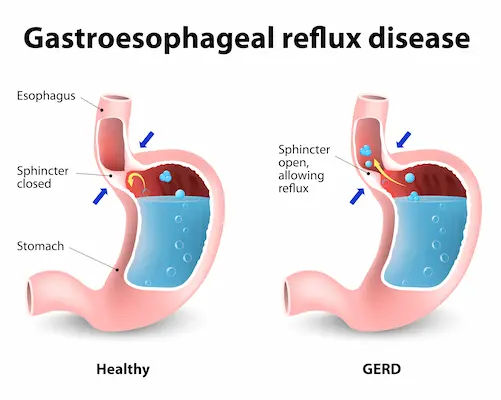Ways to Protect Your Lung Health in Winter
Learn effective tips to protect your lung health during winter and keep your respiratory system strong and healthy.

Written by Dr. Dhankecha Mayank Dineshbhai
Reviewed by Dr. Md Yusuf Shareef MBBS
Last updated on 13th Jan, 2026

Introduction
As the winter chill sets in, our focus often shifts to staying warm and avoiding the common cold. However, we frequently overlook one of the season's most vulnerable systems: our respiratory system. The combination of cold, dry air outdoors and stale, heated air indoors creates a perfect storm for lung-related issues. For individuals with pre-existing conditions like asthma or COPD, winter can be particularly daunting. But even for healthy individuals, taking proactive steps to protect your lung health is crucial for overall well-being. This comprehensive guide will walk you through the reasons winter is tough on your breathing and provide ten practical, effective strategies to keep your lungs strong and healthy all season long.
Why Winter is a Challenge for Your Respiratory System
Understanding the "why" behind the problem is the first step toward an effective solution. Winter poses a unique set of challenges that directly impact our respiratory tract.
The Impact of Cold, Dry Air on Your Airways
Our lungs prefer warm, moist air. When you breathe in cold, dry winter air, it can irritate the lining of your bronchial tubes, the airways that carry air to and from your lungs. This irritation can cause these tubes to constrict, making it harder to breathe and leading to that familiar tightness in the chest. For people with asthma, this can trigger attacks. The dry air also thickens mucus, making it less effective at trapping viruses and dust and harder to clear from the airways, potentially leading to infections.
Increased Exposure to Viruses and Indoor Pollutants
Winter is synonymous with flu season. Viruses like influenza and RSV thrive in cold, dry conditions. We also tend to spend more time indoors in close contact with others, facilitating the spread of these germs. Furthermore, sealed-up homes can trap pollutants like dust mites, pet dander, mold, and fumes from cooking or cleaning products, all of which can irritate your lungs and exacerbate respiratory problems.
Consult a Pulmonologist for the best advice
Proactive Strategies for Stronger Lungs
Arming yourself with knowledge is key. Here are actionable steps you can take to fortify your respiratory system against winter's assaults.
Master the Art of Layering and Scarf Breathing
One of the simplest yet most effective ways to protect your lungs is to wear a scarf or a face mask over your nose and mouth when outdoors. This simple act warms and humidifies the air before it enters your airways, significantly reducing the shock of cold air. It’s a vital tip for anyone wondering how to prevent winter asthma attacks.
Prioritise Indoor Air Quality
Since we spend up to 90% of our time indoors, the air inside our homes matters immensely.
The Role of Humidifiers
Using a humidifier to maintain indoor humidity levels between 30% and 50% can counteract the drying effects of heating systems. Moist air soothes irritated airways and helps keep mucus thin. Remember to clean your humidifier regularly to prevent mold growth.
Ventilation is Key
Even when it's cold, briefly opening windows for a few minutes each day can help exchange stale, polluted indoor air with fresh outdoor air. Additionally, using exhaust fans in kitchens and bathrooms can remove contaminants directly at the source.
Boost Your Immunity from Within
A robust immune system is your first line of defense against respiratory infections that can compromise lung health.
Lung-Healthy Foods to Focus On
Incorporate a diet rich in antioxidants and anti-inflammatory compounds. Focus on:
- Vitamin C: Found in citrus fruits, bell peppers, and broccoli, it helps fight infections.
- Vitamin D: Crucial for immune function. With reduced sunlight, consider a supplement after consulting your doctor. Apollo24|7 offers a convenient home collection for tests like vitamin D to check your levels.
- Omega-3 Fatty Acids: Found in fish, flaxseeds, and walnuts, they have anti-inflammatory properties.
- Garlic and Ginger: Natural anti-inflammatory and antimicrobial agents.
The Critical Role of Hydration
Staying well-hydrated is non-negotiable. Water is essential for maintaining the thin, fluid consistency of the mucus in your respiratory system, allowing your body to effectively flush out irritants and pathogens. Aim for 8-10 glasses of water daily.
Get Your Health Assessed
Smart Lifestyle Adjustments for Respiratory Wellness
Small changes in your daily habits can yield significant benefits for your pulmonary health.
Tailor Your Exercise Routine for Winter
Don't abandon physical activity! Exercise strengthens respiratory muscles and improves lung capacity. If outdoor running triggers your asthma, switch to indoor activities like swimming (in a warm, humid pool), gym workouts, or yoga. If you do exercise outside, warm up thoroughly indoors first and use your scarf for cold weather breathing.
Practice Mindful Breathing Techniques
Techniques like pursed-lip breathing and diaphragmatic breathing can help strengthen your diaphragm, slow your breathing rate, and improve the efficiency of oxygen exchange. These are excellent breathing exercises for lung health that can be practiced anywhere.
Stay Updated on Vaccinations
This is one of the most critical steps. Vaccinations for influenza (flu) and COVID-19 significantly reduce your risk of severe illness that can severely damage your lungs. If you are eligible for the pneumonia vaccine or RSV vaccine, discuss these with your healthcare provider.
When to Seek Professional Help
While these strategies are highly effective for prevention, it's crucial to recognise when to seek medical advice.
Recognising Red Flags for Lung Conditions
If you experience any of the following symptoms persistently, it's important not to ignore them:
- Shortness of breath that doesn't resolve with rest.
- A chronic cough that produces discoloured or bloody mucus.
- Wheezing or a high-pitched sound when breathing.
- Chest pain or tightness.
If symptoms persist beyond two weeks, consult a doctor online with Apollo24|7 for further evaluation. Early intervention can prevent a minor issue from becoming a major health concern, especially for individuals with chronic lung conditions.
Conclusion
Protecting your lungs health in winter doesn't require drastic measures, but rather a consistent, mindful approach. By understanding the environmental challenges and implementing these practical strategies, from scarf breathing and optimising indoor air to strengthening your immune system, you can empower your respiratory system to thrive during the colder months. Your lungs work tirelessly for you year-round; giving them this seasonal support is a vital investment in your long-term health and vitality. Start incorporating these tips today to breathe easier all winter long.
Consult a Pulmonologist for the best advice
Consult a Pulmonologist for the best advice
Dr. Naseeha Mohammed S V
Pulmonology Respiratory Medicine Specialist
6 Years • MBBS, MD ,DNB Respiratory Medicine
Bengaluru
Apollo Clinic, Sarjapur Road, Bengaluru

Dr Vishwa Vijeth K.
Pulmonology Respiratory Medicine Specialist
8 Years • MBBS, MD ( Respiratory Medicine)
Bangalore
Apollo Clinic Bellandur, Bangalore

Dr Rakesh Bilagi
Pulmonology Respiratory Medicine Specialist
10 Years • MBBS MD PULMONOLOGIST
Bengaluru
Apollo Clinic, JP nagar, Bengaluru
Dr. Preeti Kathail
General Physician/ Internal Medicine Specialist
17 Years • MBBS, PGDHHM
Bangalore
Apollo Clinic Bellandur, Bangalore

Dr. Mary Susan K S
General Physician/ Internal Medicine Specialist
13 Years • MBBS, MD INTERNAL MEDICINE
Bengaluru
Apollo Clinic, Sarjapur Road, Bengaluru
(25+ Patients)
Consult a Pulmonologist for the best advice
Dr. Naseeha Mohammed S V
Pulmonology Respiratory Medicine Specialist
6 Years • MBBS, MD ,DNB Respiratory Medicine
Bengaluru
Apollo Clinic, Sarjapur Road, Bengaluru

Dr Vishwa Vijeth K.
Pulmonology Respiratory Medicine Specialist
8 Years • MBBS, MD ( Respiratory Medicine)
Bangalore
Apollo Clinic Bellandur, Bangalore

Dr Rakesh Bilagi
Pulmonology Respiratory Medicine Specialist
10 Years • MBBS MD PULMONOLOGIST
Bengaluru
Apollo Clinic, JP nagar, Bengaluru
Dr. Preeti Kathail
General Physician/ Internal Medicine Specialist
17 Years • MBBS, PGDHHM
Bangalore
Apollo Clinic Bellandur, Bangalore

Dr. Mary Susan K S
General Physician/ Internal Medicine Specialist
13 Years • MBBS, MD INTERNAL MEDICINE
Bengaluru
Apollo Clinic, Sarjapur Road, Bengaluru
(25+ Patients)
More articles from General Medical Consultation
Frequently Asked Questions
Why do I cough more in the winter?
Winter air is dry, which can irritate your airway lining and thicken mucus. Your body coughs to try and clear this irritation. Indoor allergens and increased viral exposure also contribute to winter coughing.
What are the best breathing exercises for cold weather?
Pursed-lip breathing (inhaling through the nose for 2 counts, exhaling slowly through pursed lips for 4 counts) is highly effective. Diaphragmatic breathing, which engages the diaphragm deeply, is also excellent for improving lung capacity and control.
Can a humidifier really help with asthma in winter?
Yes, for many people. A humidifier adds moisture to the air, which can prevent the drying and irritation of airways that trigger asthma symptoms. It's important to keep it clean to avoid spreading mold spores.
How can I improve my indoor air quality without buying an air purifier?
Regular vacuuming with a HEPA filter, dusting with a damp cloth, banning smoking indoors, using exhaust fans, and introducing houseplants like spider plants or snake plants can naturally help purify the air.
When should I be concerned about shortness of breath in winter?
If shortness of breath comes on suddenly, is severe, is accompanied by chest pain, fainting, or bluish lips, seek emergency care. For milder but persistent breathlessness that interferes with daily activities, consult a doctor.





